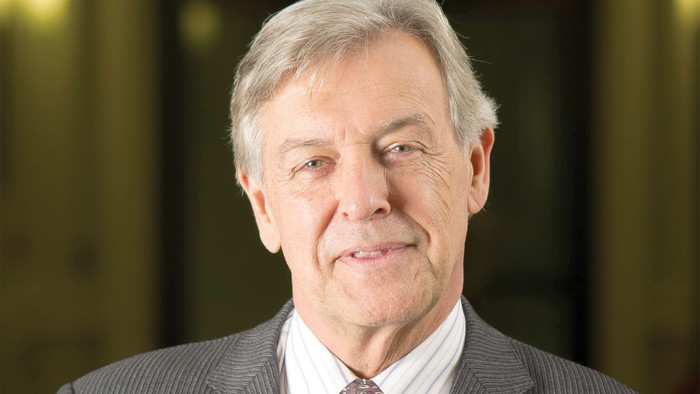Teaching of law must reflect realities of a transnational world

Roula Khalaf, Editor of the FT, selects her favourite stories in this weekly newsletter.
We live in a period of economic globalisation in which we are witnessing the convergence of humanity around fundamental rights and values and the demands of shared challenges such as climate change.
Once you accept that law is a reflection of – and is fundamentally shaped by – underlying political, social and economic structures, then it becomes clear that a transnational emphasis is essential.
Indeed, a legal education driven by a particular national perspective would be incomplete in today’s world.
Students at The Dickson Poon School of Law at King’s College London are deeply rooted in the law of England and Wales, but the school also works on the principle that a legal education should be complemented by transnational themes.
Academia can foresee many possibilities, but one of the few certainties we possess is that the future will be radically different from today and in all likelihood in ways we cannot foresee.
An emphasis on both national and transnational law not only prepares students for the world of today, it prepares them to adapt to the trajectory on which the world and the sphere of law are proceeding, perhaps even accelerating.
Finally, and perhaps most importantly, the world’s top law schools must prepare students to lead communities that are both local and global.
Today’s law school students will go on to have careers in the law profession, as well as within business, government and the professions broadly.
Students want to engage with the pressing ethical and moral questions of the day and that most of those problems possess significant transnational aspects. Therefore, a good education should encourage students to explore the practice and theory of law in all respects – for example what does the rule of law mean from one locality to the next?
One of our LLB (bachelor in laws) students recently tweeted on the contradictions between a class on EU law and one on public law. The student was really interrogating the subject and asking what it would be like to work with lawyers from multiple jurisdictions on global problems.
For law schools looking to add a transnational emphasis, the experience of King’s points to the need for several initiatives.
A solid programme should be established and research strength developed in transnational legal ordering to provide expertise and vibrancy.
Peer Zumbansen was appointed in July this year as the school’s inaugural professor of transnational law and founding director of The Dickson Poon Transnational Law Institute.
The school has also launched the Transnational Law LLM (master in laws), a programme that builds on the traditional LLM pathway to address real-world global challenges in areas including refugee law, criminal law and corporate governance.
Schools must also embrace a range of activities that bring transnational themes into the life of the school.
King’s, for example, will host the World Justice Forum V in July 2015.
This the first time that the biennial international event for the advancement of the rule of law is taking place in the UK.
It is also the first time that the World Justice Project, which organises the Forum, will be partnering with an academic institution.
The week-long Forum involves 600 participants from more than 100 countries who explore and debate the challenges facing the rule of law.
The Forum is a unique, powerful mix of leaders from government, business, civil society, the judiciary and academia who join forces with local leaders working “on the ground” on rule-of-law projects, often in less developed countries.
Most importantly, transnational law needs to be present root and branch in the way a law faculty thinks about and teaches law.
The writer is dean of The Dickson Poon School of Law, King’s College London
Comments